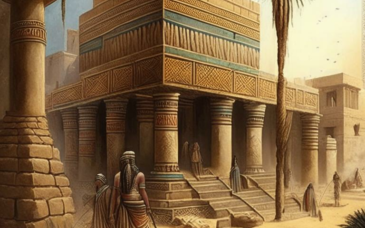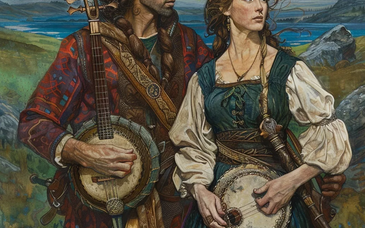Cultural Beliefs in Numerology: A Global Perspective
Introduction: The Symbolic Power of Numbers For millennia, numbers have been more than mere tools for counting—they've embodied deeper, symbolic meanings across cultures. From ancient civilizations to modern spirituality, numbers have shaped our beliefs, traditions, and destinies. This exploration reveals how various cultures have harnessed the power of numbers to understand and sometimes control the world around them.
Ancient Civilizations and Their Sacred Numbers
Throughout history, many ancient civilizations attributed mystical power to numbers, using them to reveal cosmic truths.
- Egyptians: Saw the number four as a symbol of stability, reflecting the four cardinal directions and the world resting on four pillars.
- Greeks: Pythagoreanism revered the number 10, symbolizing human completeness with ten fingers and toes.
- Mayans: Anchored their calendar system in the number 20, integrating numbers into religious rituals, architecture, and governance.
Modern numerology continues to draw inspiration from these ancient beliefs, seeing numbers as a conduit to tap into the universe's power.
Numerology in Eastern Philosophies: The Influence of Numbers in Chinese and Indian Beliefs
Eastern traditions often infuse numbers with philosophical and spiritual significance.
- Chinese: The number 8 symbolizes wealth, prosperity, and success, influencing everything from phone numbers to wedding dates.
- India: The sacred number 108 appears in rituals and prayers, representing cosmic completeness. It's significant in Hinduism, Buddhism, and Jainism, connecting the cosmos, gods, and even breath.
Western Numerology: From Pythagoras to Modern Interpretations
Western numerology traces its origins to ancient Greece, where Pythagoras viewed numbers as the basis of all things with divine qualities.
- Pythagoreanism: Believed in numerically dissecting oneself and the world to understand both visible and hidden realities.
- Renaissance: Fascination with esoteric knowledge led to the development of numerology, mixing ancient wisdom with contemporary practices.
Today, modern numerology often intersects with angel numbers, such as angel number 505, representing transformation, growth, and courage.
The Role of Numbers in African Spiritual Traditions
In many African cultures, numbers are deeply intertwined with spiritual and everyday life, symbolizing nature, ancestry, and the cosmos.
Key roles of numbers in African spirituality include:
- Rituals and Ceremonies: Numerical sequences guide rituals, like sowing crops or praying to ancestors.
- Symbolism in Art and Culture: Numbers communicate meaning in art, storytelling, and cultural symbols.
- Divination Practices: Numbers play a role in divination, attempting to foretell the future.
In African epistemologies, numbers are not just symbols—they are living entities that bridge the material and spiritual worlds.
Comparing Lucky Numbers Across Cultures
Many cultures believe in lucky numbers, which influence various aspects of life.
- China: The number 8 is lucky, sounding like "prosperity" or "wealth."
- Italy: The number 13 is considered lucky, contrary to Western superstition.
- Japan: The number 7 is seen as lucky, often used in celebrations to bring good fortune.
In modern spirituality, these beliefs have evolved into angel numbers, such as 505, which heralds good fortune and personal freedom.
Numerology and the Abrahamic Faiths: A Shared Legacy of Symbolic Numbers
Numerology also plays a role in the Abrahamic faiths—Judaism, Christianity, and Islam—where certain numbers hold sacred significance.
- 7: Symbolizes completion and perfection, as in the seven days of creation.
- 12: Represents state and government, seen in the 12 tribes of Israel and the 12 apostles.
- 40: Indicates periods of testing and change, like the 40 days and nights of rain during the biblical flood.
These numbers remain significant in modern spiritual practices, including the interpretation of angel numbers.
Numbers in Native American Spirituality: Understanding the Connection to Nature
Native American traditions often link numbers to the natural world, reflecting the cycles of nature and life.
- 4: Represents the four cardinal directions and the four seasons, central to many rituals.
- 7: Connects heaven and earth, as seen in the Seven Sacred Teachings and the Seven Generations prophecy.
Modern numerology echoes these ideas, with angel numbers like 505 symbolizing change, growth, and renewal.
The Global Rise of Angel Numbers: A New Interpretation of an Ancient Practice
In recent years, angel numbers have gained popularity worldwide, blending ancient numerology with modern interpretations.
Key reasons for the global rise of angel numbers include:
- Accessibility: Angel numerology is easy to understand and apply to daily life.
- Personalization: Provides specific advice tailored to individual circumstances.
- Spiritual Connection: Offers a tangible connection to the spirit world.
This global phenomenon reflects a broader trend of seeking meaning and purpose through numerology.
Numerology in Modern Pop Culture: How Ancient Beliefs Persist Today
Numerology has become a staple in modern pop culture, appearing in films, music, and social media.
Examples include:
- Films: "Pi" (1998), "The Number 23" (2007)
- Music: Beyoncé and Jay-Z’s number 4, which holds special meaning for them.
- Social Media: Platforms like Instagram and TikTok are filled with posts about angel numbers.
The continued appeal of numerology in pop culture highlights the timeless resonance of ancient beliefs in contemporary contexts.
The Enduring Power of Numbers
Numbers have transcended time and culture, offering a universal language that speaks to our deepest beliefs and aspirations. From ancient sacred numbers to modern angel numbers, the symbolic power of numerology continues to guide and inspire people across the globe.






